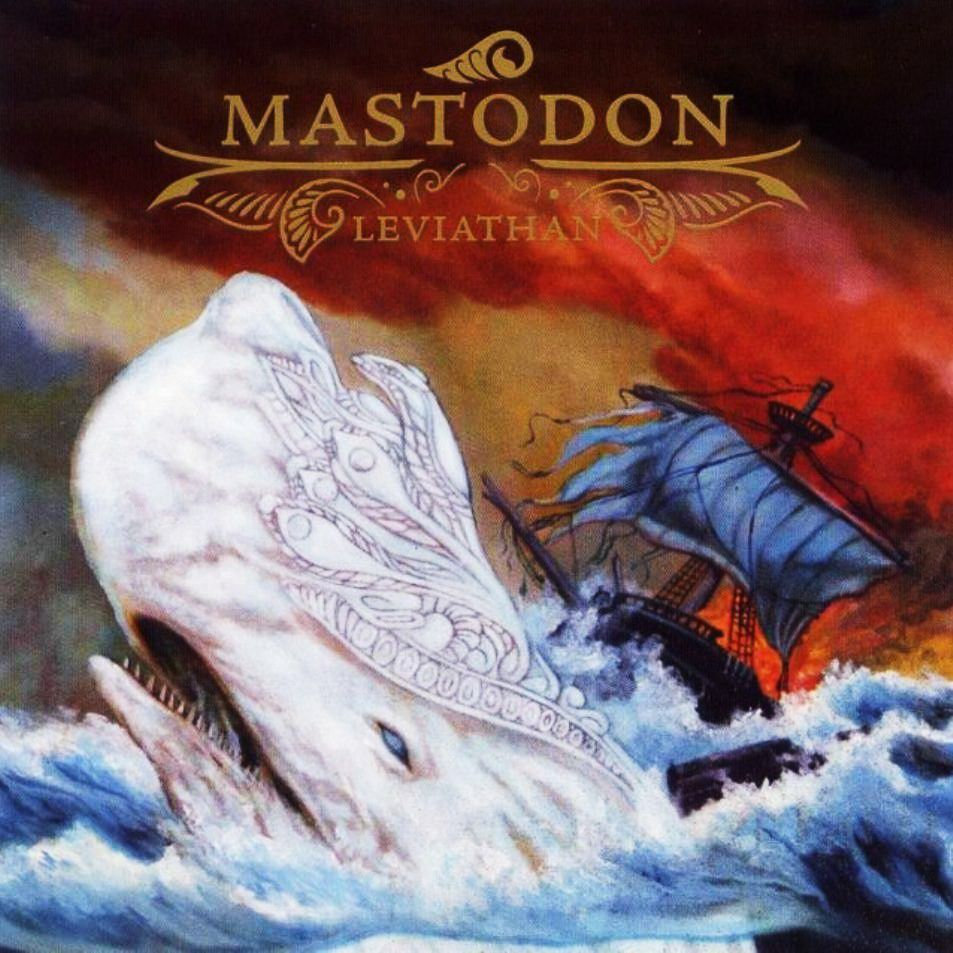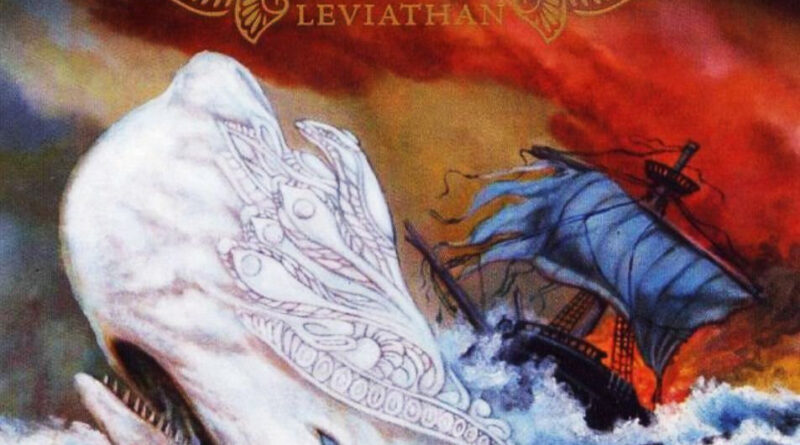HEAVY METAL HISTORY: Leviathan – Mastodon
METALLICA had Master Of Puppets in 1986, ENTOMBED had Left Hand Path in 1990 and BRITNEY SPEARS had In the Zone in 2003. Many artists have had their breakthrough from an iconic album and, In 2004, for MASTODON, Leviathan did much the same for their trajectory.
The early-mid 2000’s surged with heavy metal releases. Nu-metal dominated the era, and 2004 saw a particular rise in metalcore. It was a time for angsty, moshing, I-hate-everyone anthems, as LAMB OF GOD dropped Ashes Of The Wake in 2004, and metal favourites SLIPKNOT broke the mainstream with Vol. 3: The Subliminal Verses the same year. MASTODON didn’t fit within this “New Wave of American Heavy Metal” in which they were placed; Trading the easy-on-the-ear melodies and emo underpinnings of bands like SHADOWS FALL and KILLSWITCH ENGAGE for a grittier, more progressive offering.
2002’s Remission was an ambitious debut. Rough around the edges, but packed with fiery passion. The band didn’t hold back on unleashing their unique sound in a time where no metal sounded like theirs. While Remission was by all means a potent start, it missed the spark that ignited in Leviathan and burned throughout later albums. Released on the 31st August 2004 on Relapse Records, Leviathan took off instantly and would elevate MASTODON from an underground metal treasure to one of the biggest names in the scene. From playing clubs and bars the album saw them join the bill on the 2004 Unholy Alliance European tour with SLIPKNOT and SLAYER, plus a place on the second stage at 2005’s Ozzfest. Picking up ‘Album of the Year’ awards from Revolver, Kerrang! and Terrorizer, Leviathan‘s impact would last for years to come.
It’s not difficult to understand why Leviathan had the impact it did. The record is a powerful amalgamation of sludge, prog and heavy metal, loosely based on Herman Melville’s classic novel, Moby Dick. The second album in their four-part elemental theming (Remission (2002): fire; Leviathan (2004): water; Blood Mountain (2006): earth; Crack The Skye (2009): Air), the concept was conjured up by drummer Brann Dailor after reading the novel in 2003. Despite concerns that this could have gone down like a lead balloon, the rest of the band excitedly adopted the novel’s aesthetics. Their lives touring in vans, seeking out their musical obsession, became an analogy to Captain Ahab in search of the white whale – ‘the sea-salt Mastodon’ as it is referred to in the book.
While not a total narration of the novel, its influence and theming is immediately evident from the now-legendary cover of the ferocious white whale destroying a ship. Deliberately placed upon the head of the white whale sits a crown of cobras. In doing this, artist Paul Romano likens the whale to Vishnu, who in Hinduism, “is essentially the creator: He dreams us, and we dream him”. This mystical imagery is continued through the album’s lyrics, and enhanced by the vibrant creativity of the instrumentals. Capturing the intensity of the great voyage, the motion of the rolling waves, the mental state of Captain Ahab, and the mystery of the creatures that lurk in the deep.
If any band wonders how to open an album, they should be directed to Blood And Thunder. Creating the most face melting riff with three chords, Leviathan erupts without warning. From Troy Sanders’ first screech of “I think someone is trying to kill me!” We are teleported into the mind of Captain Ahab and his monomaniac obsession with hunting the white whale, his holy grail. The madness of interwoven riff work, bellowed repetitions and ferocious drumming echo his paranoia and loss of control. Not only did the track move mountains, or oceans in this case, it demonstrated the band’s evolution from 2002’s Remission.
I Am Ahab showcases the band’s mastery of complexity. The track falls nowhere short of the album’s beast of an opener, but it’s more technical, more emotive. I Am Ahab takes a different stance to the intense perspective of Blood And Thunder, detailing the sailors’ attraction to the sea and their decision to hunt the mighty whale:
“There’s magic in the water that attracts all men. Across hills and down streams… Built to slay and conquer. All with teeth of beasts”
In contrast, Seabeast delves into the deeper, heavier side of MASTODON. Initially melodic and slow, it gives you serious whiplash by the monstrous heaviness towards the end. The musical weight of the song is underpinned by an emotional heft, with the lyrics providing an introspective take on life at sea. While the direct references to Moby Dick disappear in the subsequent songs, Iron Tusk and Megalodon, the ocean theme is maintained. Iron Tusk takes a look at the dangerous use of harpoons, while Megalodon lives up to its name as a beast of a track. The latter opens with a swirling melody reflecting the deceptive calmness of the sea. An unexpected country-esque jingle marks a turn in the tide, launching the track into thunderous thrashing riffs with key changes that hit your ears perfectly.
Hearts Alive concludes the story of Moby Dick and, arguably, the album. At almost 14 minutes long, it’s the longest in MASTODON history, and weaves through their full array of sounds. Some fans have criticised the song for being too long or not captivating enough. And while, yes, music is subjective, that opinion is incorrect. Intentionally reminiscent of METALLICA‘s Call Of Ktulu, its opening sets the dark atmosphere for the final struggle against the whale. The shifting pace of the track echoes Ahab’s final moments with his nemesis, which culminates in the masterful repetition of a truly heartfelt riff. It’s hard to see this as anything other than MASTODON‘s masterpiece.
Leviathan is still hailed as one of the best metal albums of the 21st century, and there are few albums which have catapulted a band’s career like this. The influence of this record is not only heard throughout the MASTODON back catalogue, but has worked its way throughout the world of modern metal. Even listening to it now, 20 years on, it hits with a pummelling force which will no doubt sustain its legacy.

Leviathan was originally released on August 31st, 2004 via Relapse Records.
Like MASTODON on Facebook.

